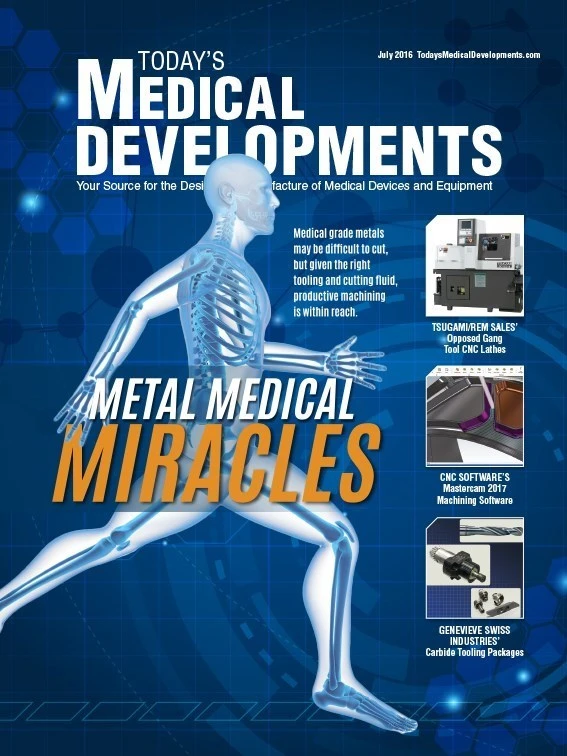
Recently developed 4- and 5-layer coextruded tubing can reduce medical device manufacturing costs up to 50%, while retaining, or even expanding, performance.
Developed by Natvar, the tubing is an alternative for applications currently relying on monolayer materials, as well as some 2- and 3-layer structures. The technology also provides a more cost-effective alternative to braided tubes for higher-pressure delivery systems.
Key tubing attributes include flexibility, clarity, and the ability to be solvent- and UV-adhesive bondable. Additional desired characteristics could include UV protection and moisture/oxygen barrier.
Drugs delivered at higher pressures, such as contrast media, could benefit from the technology. Traditional 3-layer tubes with a polyethylene inner layer can handle (based on application) up to 1,200psi.
Natvar, a Tekni-Plex Inc. Co.
Integrated stepper motors

NEMA 34 series integrated stepper motors with Profinet Industrial Ethernet capabilities are available in torque ratings of 30N-m (26.6 lb-in), 60N-m (53.1 lb-in), 90N-m (79.7 lb-in), and 120N-m (106.2 lb-in). They include all necessary electronics within the housing, and connect to Ethernet bus systems such as EtherCat, Ethernet I/P, Powelink, ModbusTCP, Sercos III, and Profinet. Bluetooth, ZigBee, WLAN, PLC, RS485, and CANbus are available with an optional SMC85 controller. Options include electronic gearing, 9.53mm (0.375") or 14mm (0.551") diameter shafts, absolute mini-turn encoder, and planetary gear heads.
JVL Industrial Elektronik A/S
Spring-energized seals for reciprocating, static/face applications

A technical catalog from Bal Seal Engineering Inc. provides information about how spring-energized seals can be used to address reciprocating and static/face sealing challenges.
The 28-page catalog, “Bal Seal spring-energized seal: Solutions for Reciprocating and Static/Face Applications,” describes the company’s range of reciprocating and static/face Bal Seal spring-energized seals can increase the performance, safety, and reliability of products designed for low-friction, high-pressure, and prolonged service sealing applications.
The catalog presents data on the seals’ properties, including pressure limits, cross section ranges, and inside diameter ranges. A detailed table describes available seal jacket materials and their characteristics, including temperature range, wear resistance, pressure/extrusion resistance, and shaft abrasion.
Bal Seal Engineering
Self-clinching pins

Type MPP microPEM self-clinching pins for micro positioning and alignment applications in compact electronic assemblies clinch permanently into stainless or other metal sheets as thin as 0.5mm (0.020"). The chamfered end of the pin offers easy mating-hole alignment, and the head of the installed pin will be flush in the host sheet to present a smooth appearance. The pins can be installed automatically and are available in diameters as small as 1mm (0.040") and in lengths as short as 2mm (0.080"). The precipitation-hardened stainless steel pins offer corrosion resistance.
PennEngineering

Explore the July 2016 Issue
Check out more from this issue and find your next story to read.
Latest from Today's Medical Developments
- Arcline to sell Medical Manufacturing Technologies to Perimeter Solutions
- Decline in German machine tool orders bottoming out
- Analysis, trends, and forecasts for the future of additive manufacturing
- BlueForge Alliance Webinar Series Part III: Integrate Nationally, Catalyze Locally
- Robot orders accelerate in Q3
- Pro Shrink TubeChiller makes shrink-fit tool holding safer, easier
- Revolutionizing biocompatibility: The role of amnion in next-generation medical devices
- #56 Lunch + Learn Podcast with Techman Robot + AMET Inc.





